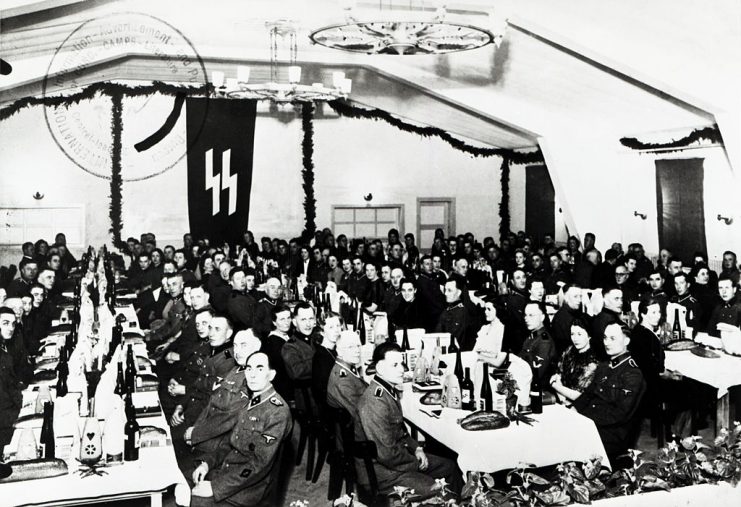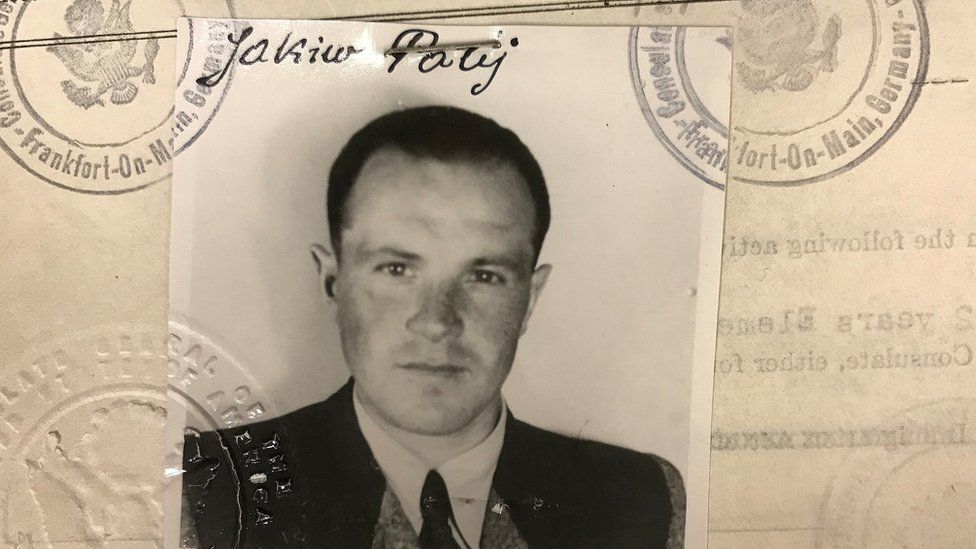The U.S. Department of Justice announced that U.S. Immigration Judge Rebecca L. Holt has instructed that former camp guard Friedrich Karl Berger be deported from the United States.
The ruling from Judge Holt was made in a court in Memphis and stated the reason for the deportation was “on the basis of his service in Nazi Germany in 1945 as an armed guard of concentration camp prisoners in the Neuengamme Concentration Camp system.”

Neuengamme Concentration Camp was established in 1938 close to the village of Neuengamme close to Hamburg in Northern Germany. Neuengamme consisted of the main camp with 85 satellite camps, 24 of which were only for women.
This grouping grew to be the largest concentration camp in Northern Germany. The main camp and its satellites took in over 100,000 prisoners during the war.
There is a verified death toll of 42,900 where 14,000 died in the main camp, and 12,800 in the satellite camps.
16,100 died during the enforced death march when prisoners were removed from the camps and marched deeper into Germany at the end of the war.

Berger, a German citizen, living in Tennessee, served at one of the Neuengamme satellite camps that had been built near Meppen, as an armed guard in the period 1938 to 1945.
The camp took in not only Jews and political opponents of the Nazis but also Dutch, Latvian, French, Russian, Polish, and Danish prisoners.
Judge Holt hear how the prisoners at Meppen were held in abysmal conditions. They were subjected to brutal outdoor labor during the bitter winter weather. This often led to prisoners dying.
Berger admitted to being a guard and that his duties included ensuring prisoners did not escape, either from the camp, during their enforced labor, or when being moved from one camp to another.

In 1945 with the advance of the British and Canadian forces, the camps at Meppen and Neuengamme were abandoned, and the prisoners force-marched away from the Allied front.
Judge Holt’s finding stated that the prisoners were sent on “a nearly two-week trip under inhumane conditions, which claimed the lives of some 70 prisoners.”
Berger agreed that he had never asked for a transfer from guard duty. He also acknowledged that he received a pension from the German Government that was, in part, for his wartime service.
Judge Holt went on to say that Berger was a member of the oppressive SS environment that ensured prisoners were kept in atrocious conditions.
Berger was found to be a willing member of this oppression and that he did nothing to try and stop the persecution of the people in the camps.
This led to Judge Holt finding that under the 1978 Holtzman Amendment to the Immigration and Nationality Act, Berger was eligible for deportation back to Germany, as his service as a guard constituted assistance to the Nazi-sponsored persecution during World War II.
Assistant Attorney General Brian A. Benczkowski, of the Department of Justice’s Criminal Division, said that this ruling further underscored the Department’s commitment to ensuring that justice was obtained, no matter how late, for victims of the persecution undertaken by the Nazis during the war.
The investigation that led to this ruling was started by the Human Rights and Special Prosecution Section of the Justice Department.
A list of 12,000 names of Nazis in Argentina Leads to Stolen Wealth in Swiss Banks
The U.S. Immigration and Customs Enforcement’s Homeland Security Investigations Human Rights Violators and War Crimes Center assisted in the investigation.
